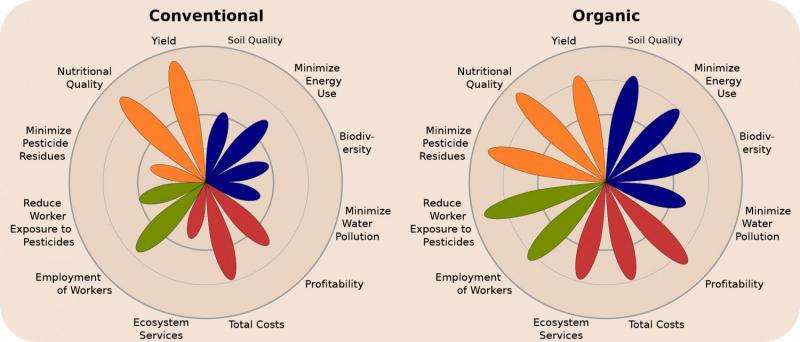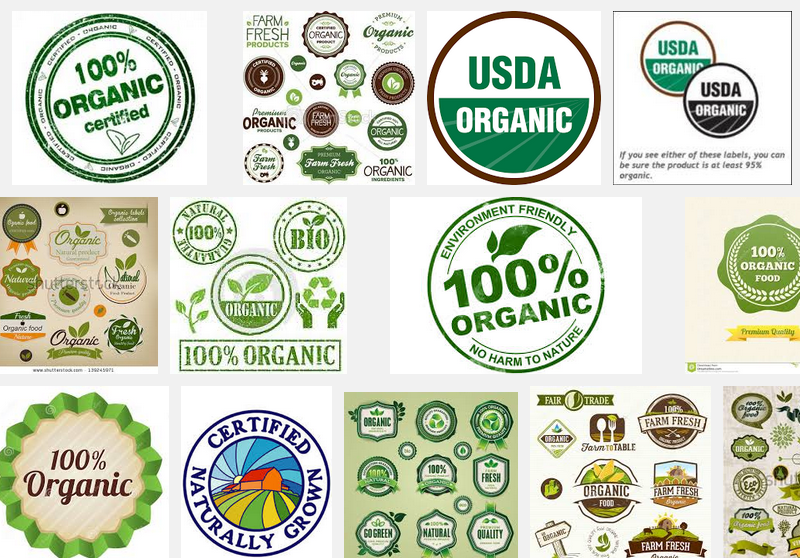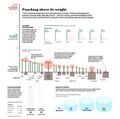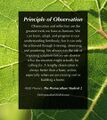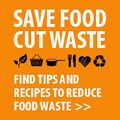Category:Organic Food: Difference between revisions
Siterunner (talk | contribs) No edit summary |
Siterunner (talk | contribs) No edit summary |
||
| (9 intermediate revisions by the same user not shown) | |||
| Line 1: | Line 1: | ||
<addthis /> | |||
[[File:Featured.png]] | |||
<big>'''Organic agriculture key to feeding the world sustainably'''</big> | |||
:http://phys.org/news/2016-02-agriculture-key-world-sustainably.html | |||
[[File:Organicagric.jpg]] | |||
: <big><font color=green>○ ○ ○ ○ ○ ○ ○ ○ ○ ○ ○ ○ ○ ○ ○ ○ ○ ○</font></big> | |||
http:// | * http://en.wikipedia.org/wiki/Organic_food | ||
https://www. | * https://www.organic-center.org/ | ||
http://www. | * http://www.ccof.org/ -- California organic foods | ||
* http://www.ifoam.bio/ -- International | |||
* http://www.organic.org/ | |||
* https://www.organicconsumers.org/ | |||
http://www. | * http://www.nongmoproject.org/ | ||
<big><font color=blue>○ ○ ○ ○ ○ ○ ○ ○ ○ ○ ○ ○ ○ ○ ○ ○ ○ ○ ○</font></big> | |||
<big>'''Organic Farming Can Feed the World'''</big> | |||
* http://www.technologywater.com/post/69995394390/un-report-says-small-scale-organic-farming-only UM Report | |||
''Even as the United States government continues to push for the use of more chemically-intensive and corporate-dominated farming methods such as GMOs and monoculture-based crops, the United Nations is once against sounding the alarm about the urgent need to return to (and develop) a more sustainable, natural and organic system.'' | |||
''That was the key point of a new publication from the UN Commission on Trade and Development (UNCTAD) titled “Trade and Environment Review 2013: Wake Up Before It’s Too Late,” which included contributions from more than 60 experts around the world.'' | |||
* http://unctad.org/en/PublicationsLibrary/ditcted2012d3_en.pdf | |||
* http://www.srfood.org/images/stories/pdf/officialreports/20110308_a-hrc-16-49_agroecology_en.pdf | |||
○ ○ ○ ○ ○ ○ ○ ○ ○ ○ ○ ○ ○ ○ ○ ○ ○ ○ ○ ○ ○ ○ ○ ○ ○ ○ ○ ○ ○ ○ ○ ○ ○ ○ ○ ○ ○ ○ ○ ○ ○ ○ ○ ○ ○ ○ | |||
The world needs a paradigm shift in agricultural development: from a “green [chemical-intensive) revolution” to an “ecological (sustainable) intensification” approach. | |||
The world needs a paradigm shift in agricultural development: from a “green revolution” to an “ecological intensification” approach. | |||
This implies a rapid and significant shift from conventional, monoculture-based and high-external-input-dependent industrial production towards mosaics of sustainable, regenerative production systems that also considerably improve the productivity of small-scale farmers. We need to see a move from a linear to a holistic approach in agricultural management, which recognizes that a farmer is not only a producer of agricultural goods, but also a manager of an agro-ecological system that provides quite a number of public goods and services (e.g. water, soil, landscape, energy, biodiversity, and recreation). | This implies a rapid and significant shift from conventional, monoculture-based and high-external-input-dependent industrial production towards mosaics of sustainable, regenerative production systems that also considerably improve the productivity of small-scale farmers. We need to see a move from a linear to a holistic approach in agricultural management, which recognizes that a farmer is not only a producer of agricultural goods, but also a manager of an agro-ecological system that provides quite a number of public goods and services (e.g. water, soil, landscape, energy, biodiversity, and recreation). | ||
The required transformation is much more profound than simply tweaking the existing industrial agricultural system. | The required transformation is much more profound than simply tweaking the existing industrial agricultural system. | ||
Rather, what is called for is a better understanding of the multi-functionality of agriculture, its pivotal importance for pro-poor rural development and the significant role it can play in dealing with resource scarcities and in mitigating and adapting to climate change. However, the sheer scale at which modified production methods would have to be adopted, the significant governance issues, the power asymmetries’ problems in food input and output markets as well as the current trade rules for agriculture pose considerable challenges. | Rather, what is called for is a better understanding of the multi-functionality of agriculture, its pivotal importance for pro-poor rural development and the significant role it can play in dealing with resource scarcities and in mitigating and adapting to climate change. However, the sheer scale at which modified production methods would have to be adopted, the significant governance issues, the power asymmetries’ problems in food input and output markets as well as the current trade rules for agriculture pose considerable challenges. | ||
[[File:Organic food | [[File:Organic food labels2.png]] | ||
Latest revision as of 21:49, 12 May 2019
<addthis />
Organic agriculture key to feeding the world sustainably
- ○ ○ ○ ○ ○ ○ ○ ○ ○ ○ ○ ○ ○ ○ ○ ○ ○ ○
- http://www.ccof.org/ -- California organic foods
- http://www.ifoam.bio/ -- International
○ ○ ○ ○ ○ ○ ○ ○ ○ ○ ○ ○ ○ ○ ○ ○ ○ ○ ○
Organic Farming Can Feed the World
- http://www.technologywater.com/post/69995394390/un-report-says-small-scale-organic-farming-only UM Report
Even as the United States government continues to push for the use of more chemically-intensive and corporate-dominated farming methods such as GMOs and monoculture-based crops, the United Nations is once against sounding the alarm about the urgent need to return to (and develop) a more sustainable, natural and organic system.
That was the key point of a new publication from the UN Commission on Trade and Development (UNCTAD) titled “Trade and Environment Review 2013: Wake Up Before It’s Too Late,” which included contributions from more than 60 experts around the world.
○ ○ ○ ○ ○ ○ ○ ○ ○ ○ ○ ○ ○ ○ ○ ○ ○ ○ ○ ○ ○ ○ ○ ○ ○ ○ ○ ○ ○ ○ ○ ○ ○ ○ ○ ○ ○ ○ ○ ○ ○ ○ ○ ○ ○ ○
The world needs a paradigm shift in agricultural development: from a “green [chemical-intensive) revolution” to an “ecological (sustainable) intensification” approach.
This implies a rapid and significant shift from conventional, monoculture-based and high-external-input-dependent industrial production towards mosaics of sustainable, regenerative production systems that also considerably improve the productivity of small-scale farmers. We need to see a move from a linear to a holistic approach in agricultural management, which recognizes that a farmer is not only a producer of agricultural goods, but also a manager of an agro-ecological system that provides quite a number of public goods and services (e.g. water, soil, landscape, energy, biodiversity, and recreation).
The required transformation is much more profound than simply tweaking the existing industrial agricultural system.
Rather, what is called for is a better understanding of the multi-functionality of agriculture, its pivotal importance for pro-poor rural development and the significant role it can play in dealing with resource scarcities and in mitigating and adapting to climate change. However, the sheer scale at which modified production methods would have to be adopted, the significant governance issues, the power asymmetries’ problems in food input and output markets as well as the current trade rules for agriculture pose considerable challenges.
Pages in category "Organic Food"
The following 16 pages are in this category, out of 16 total.
Media in category "Organic Food"
The following 40 files are in this category, out of 40 total.
- Biggest little farm-1.jpg 800 × 533; 123 KB
- Blog-soil.jpg 722 × 491; 58 KB
- Common Ground, the Movie.png 600 × 756; 775 KB
- CSA Community Supported Agriculture practices.jpg 500 × 332; 33 KB
- Deborah Madison books 2017 photo courtesy of Deborah-in-Santa Fe.jpg 800 × 530; 81 KB
- FarmersMarkets logos.png 1,533 × 537; 1.24 MB
- Florida strawberry festival.jpg 800 × 450; 63 KB
- Food as medicine.jpg 480 × 480; 56 KB
- FOOD politics-health.jpg 462 × 145; 43 KB
- Food Principles.jpg 534 × 400; 186 KB
- Food wasted-lost.png 708 × 715; 376 KB
- FOOD.jpg 983 × 311; 117 KB
- GreenBook-icon.png 128 × 128; 2 KB
- Lawton on Mollison Permaculture.png 491 × 352; 179 KB
- Market Gardening.png 800 × 334; 526 KB
- Netherlands agriculture - Outstanding results globally.jpg 680 × 674; 77 KB
- Organic - 'Natural' Products companies Corp acquisitions US 1997-2014.png 1,098 × 840; 1.07 MB
- Organic food 1a.png 609 × 458; 400 KB
- Organic food 3.png 837 × 585; 547 KB
- Organic food labels1.png 1,497 × 558; 1.39 MB
- Organic food labels2.png 800 × 558; 870 KB
- Organic-chart-Jan-2016.pdf ; 136 KB
- Organicagric.jpg 800 × 342; 31 KB
- Permaculture-observation tip.jpg 480 × 540; 86 KB
- Save Food.jpg 300 × 168; 5 KB
- SaveFood, CutWaste.jpg 200 × 200; 12 KB
- Seed-monopoly-consolidation-chart-2018.jpg 800 × 533; 318 KB
- Seeds, time lapse.png 800 × 428; 297 KB
- Slow Food Initiatives 2015.png 1,004 × 802; 278 KB
- Slow Food.jpg 266 × 190; 11 KB
- SlowFood viatimthumb.jpg 620 × 300; 139 KB
- Soil is the root stuff.jpg 483 × 960; 97 KB
- Soil-vs-dirt-infographic.jpg 887 × 578; 115 KB
- Stop Wasting Food.jpg 900 × 679; 70 KB
- Sustainable agriculture.jpg 960 × 360; 247 KB
- The Greens Cookbook.jpg 116 × 225; 7 KB
- Urban Gardens 1.png 733 × 847; 1.17 MB
- Via Dr Stacey Robinson.JPG 800 × 789; 238 KB
- WaterConservation.jpg 361 × 545; 26 KB

